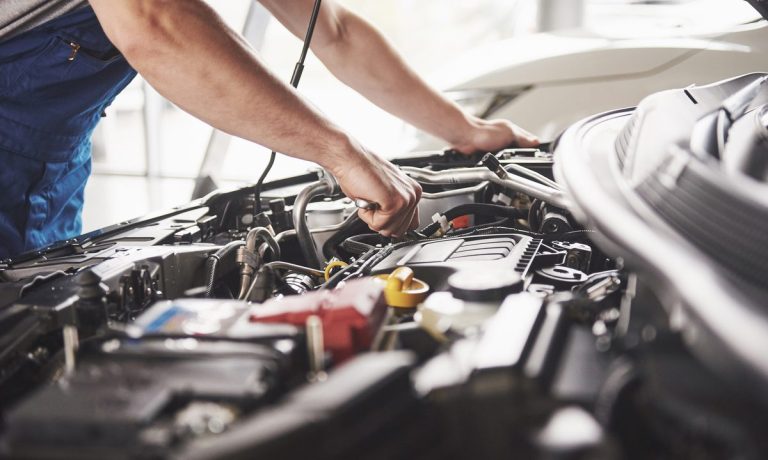Auto Parts Sales Get Boost From New Car Shortage

With the automotive microchip shortage expected to last well into 2022, prices for new and used cars remain elevated, leading many consumers to consider repairs and better upkeep of their vehicles over outright replacement.
William Rhodes, chairman, president and CEO of AutoZone, said earlier this week that during previous recessions, the auto parts retailer has seen “people change their perspective on how long they’re going to keep their car, and so they focus on how to maintain it right versus thinking they’re going to get a new car in six months.”
The vehicle shortages have only exacerbated this trend, he added.
“I think people — in particular, our more challenged economically customers — are thinking, ‘I’m going to have this care for a long time, I’d better take care of it,” Rhodes said on a conference call with analysts Tuesday (Dec. 7).
In the first quarter of its fiscal year, AutoZone reported net sale up 16.3% to $3.7 billion compared to the same period two years ago. Domestic same-store sales were up 13.6% for Q1.
According to the U.S. Department of Commerce, motor vehicle and parts dealers saw a 1.8% increase in monthly sales in October. Year over year, the category saw over 11% increase in sales.
See: AutoZone Reports New Stores, Healthy Sales
Tom Greco, president and CEO of Advance Auto Parts, similarly said last month that the chip shortage is leading consumers to repair and maintain their vehicles longer, and the fleet of cars being driven in the U.S. is continuing to age.
“And, perhaps most importantly, vehicle miles driven continue to improve versus both 2020 and 2019,” Greco told analysts.
Last month, Advance Auto Parts reported that net sales for the third quarter of their fiscal 2021 were up 3.1% to $2.6 billion, with comparable sales also increased by 3.1% and up 13.3% since the same time in 2019.
Read more: Advance Auto Parts Sales Growth Continues
On the Road Again
Executives at both Advance Auto Parts and AutoZone also noted a spike in travel in recent months, which is leading to more wear on vehicles and boosting sales of parts from both retail and professional customers. Greco said at Advance Auto Parts, the professional business is “now consistently excessing pre-pandemic levels” as the economy reopens and miles driven steadily increase.
“You’ve got consumers picking up hobbies like detailing their cars, you’ve got people keeping their cars longer because they can’t find a new one, they’re buying recreational vehicles to visit parts of the country they’ve never seen before,” he said. “And even in urban markets, you’ve got some people that have bought cars because they’re no longer comfortable with mass transit.”
Greco added that “it’s difficult to say how sticky some of these trends are going to be,” but for now, they’re providing “robust demand.”
AutoZone’s Rhodes said his company has also seen maintenance and failure-related categories perform well, particularly in categories such as batteries, which has lapped “very strong performance last year.”
Looking Ahead
After past recessions and economic downturns, Rhodes said AutoZone and the overall auto parts industry has not typically seen a decrease in demand and sales even when conditions improve. “It’s as if we reached a new plateau and we just stayed there until we built again,” he said.
But because of the explosive growth in sales seen over the past two years, Rhodes said it’s likely that a slight decrease in sales could be coming when the pandemic is fully over.
“My expectation with the pandemic and the amount of sales that we saw, particularly in the retail business from the depths of the stay-at-home orders and all those things, was we would see somewhat a reversion to the mean,” he said.